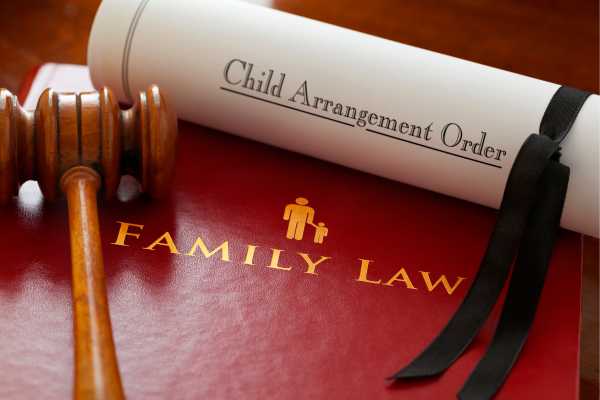Divorce is often seen as a tumultuous and emotionally draining process. However, it doesn’t have to be this way. Divorce mediation offers an alternative route to dispute resolution that can lead to a more amicable and less stressful separation. MIAMS Harlow aims to provide valuable insights into divorce mediation, its benefits, and how it can help you navigate your separation smoothly.
What is Divorce Mediation?
Divorce mediation Harlow is a voluntary process where a neutral third party, known as a mediator, helps couples reach an agreement on the terms of their divorce. Unlike traditional court proceedings, mediation focuses on collaboration and mutual decision-making. The goal is to resolve issues such as child custody, property division, and spousal support in a manner that is acceptable to both parties.
Benefits of Divorce Mediation Harlow
1. Cost-Effective
One of the most significant advantages of divorce mediation is its cost-effectiveness. Court battles can be expensive, with legal fees quickly escalating. Mediation, on the other hand, generally requires fewer hours of legal assistance, making it a more affordable option.
2. Faster Resolution
Traditional divorces can take months or even years to finalise. Mediation usually takes less time because it avoids the lengthy court schedules and procedural delays. Couples can often reach an agreement within a few sessions, allowing them to move on with their lives more quickly.
3. Greater Control
In a courtroom, a judge makes the final decisions regarding your divorce. Mediation puts the power back into your hands, allowing you and your spouse to tailor the agreement to suit your unique circumstances. This collaborative approach often leads to more satisfying outcomes for both parties.
4. Confidentiality
Court proceedings are public records, which means anyone can access the details of your divorce. Mediation sessions, however, are private and confidential. This ensures that your personal matters remain discreet, offering you peace of mind during an already challenging time.
5. Less Stressful
Divorce is inherently stressful, but mediation can significantly reduce the emotional toll. The process encourages open communication and cooperation, making it easier to address sensitive issues. This can be particularly beneficial when children are involved, as it sets a positive tone for co-parenting.
The Mediation Process: Step-by-Step
1. Initial Consultation
The first step in the mediation process is an initial consultation with the mediator. During this meeting, the mediator will explain the process, discuss your goals, and answer any questions you may have. Both parties must agree to mediate and commit to the process.
2. Information Gathering
Once both parties agree to proceed, the mediator will gather all necessary information. This includes financial documents, property valuations, and any other relevant materials. Full disclosure is crucial for a fair and equitable agreement.
3. Identifying Issues
The mediator will help identify the key issues that need to be resolved. These typically include child custody and visitation, division of assets and debts, spousal support, and any other specific concerns you may have.
4. Negotiation Sessions
During negotiation sessions, the mediator will facilitate discussions between both parties. The aim is to find mutually agreeable solutions to each issue. The mediator may suggest options, but the final decisions are made by the couple.
5. Drafting the Agreement
Once all issues are resolved, the mediator will draft a written agreement outlining the terms of the divorce. Both parties should review the document carefully and consult their respective legal advisors before signing.
6. Finalising the Divorce
After the agreement is signed, it is submitted to the court for approval. Once the court reviews and approves the agreement, the divorce is finalised. This step may vary depending on local laws and regulations.
Tips for Successful Mediation with MIAMS Harlow
1. Choose the Right Mediator
Selecting an experienced and qualified mediator is crucial for the success of the process. Look for someone who specialises in family law and has a good track record in mediation.
2. Be Prepared
Come to mediation sessions prepared with all necessary documents and a clear understanding of your goals. Being organised can help streamline the process and ensure that all issues are addressed.
3. Stay Open-Minded
Mediation requires a willingness to compromise. Keep an open mind and be prepared to consider different perspectives. This flexibility can lead to more creative and satisfactory solutions.
4. Communicate Effectively
Effective communication is key to successful mediation. Listen actively to your spouse and express your concerns clearly. Avoid blame and focus on finding solutions that work for both parties.
5. Prioritise the Well-Being of Children
If children are involved, their well-being should be a top priority. Aim to create a parenting plan that supports their needs and maintains a healthy relationship with both parents.
Conclusion
Divorce mediation Harlow offers a more peaceful and collaborative approach to ending a marriage. By focusing on cooperation and mutual agreement, couples can avoid the adversarial nature of traditional divorce proceedings. This not only saves time and money but also reduces the emotional strain on all parties involved.
If you are considering divorce, MIAMS Harlow mediation may be the right choice for you. It provides a confidential, cost-effective, and less stressful way to navigate the complexities of separation. For those ready to take the next step, consult with an experienced mediator to explore this beneficial alternative.
By understanding the Harlow mediation process and its advantages, you can make informed decisions that pave the way for a smoother transition into the next chapter of your life. Remember, divorce doesn’t have to be a battle. With mediation, it can be a journey towards mutual respect and a better future for everyone involved

